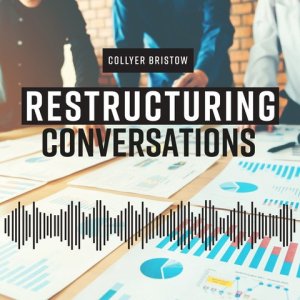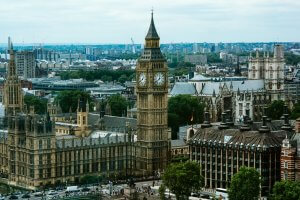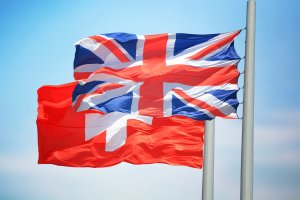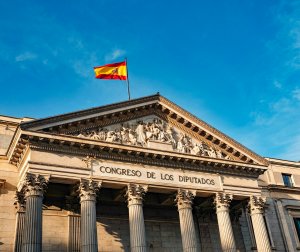- Arbitration
- Commercial disputes
- Manufacturing

Longer Reads
Nix Of $11B Award Shows Limits Of Arbitral Process
Our Dispute Resolution team comments on the landmark arbitration decision in Federal Government of Nigeria v. Process & Industrial Developments Ltd [2023] EWHC 2638 (Comm).
5 minute read
Published 20 November 2023
Key information
- Specialisms
- Dispute Resolution
On Oct. 23, in a landmark decision in Nigeria v. Process & Industrial Developments Ltd., the High Court of Justice of England and Wales overturned a $11 billion arbitration award on the basis that the award had been obtained by fraud and was contrary to public policy.
This decision is important for determining when the threshold for showing serious irregularities in an arbitration ruling can be met under Section 68 of the Arbitration Act 1996.
It also shows the limitations in the arbitration process in detecting fraud and the high cost inherent for those who wish to challenge an arbitration decision in the courts.
Background of the Case
In January 2010, the Nigerian government and Process and Industrial Developments, or P&ID, entered into a 20-year contract.
Pursuant to the contract, P&ID would construct and operate a gas processing plant in Nigeria, and Nigeria would provide P&ID with specified quantities of so-called wet gas.
However, neither party performed their obligations under the contract, which led P&ID to seek compensation for loss of profits.
The contract included an arbitration clause that P&ID relied upon to commence an arbitration in London in January 2013.
The arbitration tribunal, having first determined that it did have jurisdiction to deal with the dispute, determined that Nigeria was in repudiatory breach of the contract and awarded $6.6 billion in damages to P&ID, which included a 7% interest rate.
The High Court Proceedings
Nigeria applied to the High Court in London to challenge the award on the basis that it had been obtained by fraud or was procured in a way that was contrary to public policy under Section 68(2)(g) of the Arbitration Act 1996.
Owing to the accrual of interest, the award had reached about $11 billion by the time the dispute came before the court.
Analysis of Section 68(2)(g)
The fraud or contrariness to public policy must relate to the award or the way in which it was obtained, rather than the contract or underlying claim itself.
So, while the court found that P&ID had bribed the Nigerian ministry official Grace Taiga — legal director of the Ministry of Petroleum Resources in Nigeria — to obtain the contract on favorable terms to P&ID, this was not of itself sufficient to set aside the award.
The court determined that when there is an overall fraudulent enterprise from the start to procure an award, it would fall within Section 68(2)(g).
However, it could not find such an intention on the part of P&ID here, concluding that while P&ID was prepared to engage in bribery, it did intend to perform the contract, but rather using it solely as a mechanism for achieving an award.
However, the court found that there were three irregularities that did fall within the scope of Section 68(2)(g).
Firstly, one of P&ID’s witnesses knowingly gave false evidence during the arbitration, as they explained how the contract came to be, but deliberately failed to mention the bribery payments made at the time, despite these being known to the witness.
P&ID had also made further bribery payments to Taiga following the formation of the contact to keep her onside, and to ensure that the fact of the bribery would remain a secret from both Nigeria and the arbitration tribunal.
Furthermore, during the course of the arbitration, P&ID had obtained copies of Nigeria’s privileged legal documents, but P&ID’s legal team, who would have known P&ID was not entitled to them, did not stop P&ID from viewing the documents, nor inform or return the documents to Nigeria as they should have done.
Each of these events amounted to fraud and the way in which the award was obtained was therefore contrary to public policy.
The court then turned to consider whether these irregularities had or would cause substantial injustice, thereby becoming serious irregularities. This should only be found where “what has happened is so far removed from what could reasonably be expected of the arbitral process that we would expect the court to take action.”
In effect, this means that the irregularity must have been so material that it likely would have affected the result of the arbitration. This is a high threshold to meet.
The court found that had the fact of bribery of Taiga — at the time the contract was executed — been put before the tribunal, it would have (brought into issue whether the contract was obtained by fraud, and as a result whether the contract would be voidable.
It also it would have altered the tribunal’s approach to P&ID’s witness evidence, which concealed the fraud.
Judgment
It was determined that the award was obtained by fraud, that the award and the way in which it was obtained was contrary to public policy, and that Nigeria had clearly suffered a substantial injustice as a result.
Nigeria therefore succeeded in its challenge under Section 68(2)(g).
Seamus Andrew and Trevor Burke KC of P&ID’s legal team were separately referred to their regulators for their misconduct regarding Nigeria’s privileged documents.
Greed as a driver of corruption was evident, according to the court. For example, court documents showed that Andrew, via his company Lismore Capital Ltd., held shares in P&ID and stood to gain 75% of the enforcement of the award.
Commentary
This decision is an important one for determining the scope of matters that can be considered serious irregularities on the basis of public policy in relation to arbitration awards.
However, the high threshold of Section 68 means that, in reality, parties who wish to challenge an arbitration are likely to have to incur significant delay, cost and risk in taking court proceedings.
Whether to Arbitrate or Litigate
On a wider view, the case also calls into question the use of arbitration as opposed to court proceedings in general.
Judge Robin Knowles made comments on the process of arbitration generally and, while he recognized the value of that process generally to the commercial world, he said the case raised questions about the ability of arbitration to get to the truth.
The judge added that even having a tribunal panel of the greatest experience and expertise was not enough to prevent the outcome being obtained by fraud.
The judge’s comments are bound to provoke further debate within the arbitration community as to its effectiveness as a process, particularly its appropriateness for use by sovereign states with responsibility for very large sums of public money.
Where such states have limited resources and unequal bargaining power compared with major commercial organizations, consideration should be given as to the suitability of the process.
Public Accountability
The arbitration process is confidential, whereas court proceedings take place within the public forum.
As a consequence, arbitration cannot confer the same level of public accountability on the parties.
Whether P&ID would have behaved differently had the proceedings been within the public domain is impossible to know, but this is a factor to consider when weighing up the pros and cons of arbitration.
There may be reasons to wish for privacy, perhaps to protect a commercial reputation, but there may also be benefit in holding your opponent to public account, for example, to increase public scrutiny and thus place further pressure upon them to be truthful or to settle.
Disclosure
Another factor to consider when deciding whether to arbitrate or litigate is the disclosure process.
This case has raised concerns over whether the disclosure process within arbitration is robust enough to deal with claims of such public importance and value.
It was only through the subsequent disclosure secured from P&ID and third parties pursuant to court orders that the fraud in this case was discovered — it had not come to light during the arbitration.
Section 34 of the Arbitration Act 1996 states that “It shall be for the tribunal to decide all procedural and evidential matters, subject to the right of the parties to agree any matter,”[1] which is vague.
The London Court of International Arbitration, or LCIA, 2020 Rules provide few requirements or guidance in respect of disclosure, simply providing that when parties exchange their written statements of case they should also provide “all documents relied upon”.[2] This would only translate to producing documents that support a party’s case.
This is worlds away from the U.K. court civil procedure rules, such as CPR Part 31, which have stringent disclosure requirements, most importantly the requirement to also disclose documents that are adverse to your case.
However, one of the key benefits to arbitration, at least in theory, is cost saving, as disclosure is one of the costliest processes in court proceedings.
And the tribunal does have discretion under the LCIA 2020 rules to “order any party to produce documents or copies of documents in their possession.”
On Sept. 6, the Law Commission published a report on their review of the Arbitration Act 1996, but that did not include recommendations in respect of document disclosure by parties.[3] The LCIA’s 2022 Annual Casework Report also made no reference to this issue.[4] But this judgment came after both.
Concluding Comments
At a time when arbitration has become increasingly popular as a means of dispute resolution, particularly for cross-border disputes involving sizable corporations, this case is a reminder that arbitration decisions are not only ultimately still accountable to the courts, but also that the relative simplicity of the arbitration rules is not necessarily always a benefit.
On the one hand, the light touch of the arbitration process can achieve a quicker and more cost-effective resolution of disputes, but, on the other hand, the lack of rigor, for example in respect of disclosure, can be open to abuse and lead to serious injustice.
In those cases where irregularities have occurred, a party wishing to challenge the arbitral award faces a lengthy and costly fight in court to prove that the outcome was contrary to public policy.
This may lead those entering into commercial contracts to consider more carefully whether to opt for arbitration as opposed to court proceedings as the preferred form of dispute resolution.
For more information, please visit our Arbitration Lawyers page. This article was first published by Law360 on 20 November 2023.
Sources:
Related content
Longer Reads
Nix Of $11B Award Shows Limits Of Arbitral Process
Our Dispute Resolution team comments on the landmark arbitration decision in Federal Government of Nigeria v. Process & Industrial Developments Ltd [2023] EWHC 2638 (Comm).
Published 20 November 2023
Associated sectors / services
Authors
On Oct. 23, in a landmark decision in Nigeria v. Process & Industrial Developments Ltd., the High Court of Justice of England and Wales overturned a $11 billion arbitration award on the basis that the award had been obtained by fraud and was contrary to public policy.
This decision is important for determining when the threshold for showing serious irregularities in an arbitration ruling can be met under Section 68 of the Arbitration Act 1996.
It also shows the limitations in the arbitration process in detecting fraud and the high cost inherent for those who wish to challenge an arbitration decision in the courts.
Background of the Case
In January 2010, the Nigerian government and Process and Industrial Developments, or P&ID, entered into a 20-year contract.
Pursuant to the contract, P&ID would construct and operate a gas processing plant in Nigeria, and Nigeria would provide P&ID with specified quantities of so-called wet gas.
However, neither party performed their obligations under the contract, which led P&ID to seek compensation for loss of profits.
The contract included an arbitration clause that P&ID relied upon to commence an arbitration in London in January 2013.
The arbitration tribunal, having first determined that it did have jurisdiction to deal with the dispute, determined that Nigeria was in repudiatory breach of the contract and awarded $6.6 billion in damages to P&ID, which included a 7% interest rate.
The High Court Proceedings
Nigeria applied to the High Court in London to challenge the award on the basis that it had been obtained by fraud or was procured in a way that was contrary to public policy under Section 68(2)(g) of the Arbitration Act 1996.
Owing to the accrual of interest, the award had reached about $11 billion by the time the dispute came before the court.
Analysis of Section 68(2)(g)
The fraud or contrariness to public policy must relate to the award or the way in which it was obtained, rather than the contract or underlying claim itself.
So, while the court found that P&ID had bribed the Nigerian ministry official Grace Taiga — legal director of the Ministry of Petroleum Resources in Nigeria — to obtain the contract on favorable terms to P&ID, this was not of itself sufficient to set aside the award.
The court determined that when there is an overall fraudulent enterprise from the start to procure an award, it would fall within Section 68(2)(g).
However, it could not find such an intention on the part of P&ID here, concluding that while P&ID was prepared to engage in bribery, it did intend to perform the contract, but rather using it solely as a mechanism for achieving an award.
However, the court found that there were three irregularities that did fall within the scope of Section 68(2)(g).
Firstly, one of P&ID’s witnesses knowingly gave false evidence during the arbitration, as they explained how the contract came to be, but deliberately failed to mention the bribery payments made at the time, despite these being known to the witness.
P&ID had also made further bribery payments to Taiga following the formation of the contact to keep her onside, and to ensure that the fact of the bribery would remain a secret from both Nigeria and the arbitration tribunal.
Furthermore, during the course of the arbitration, P&ID had obtained copies of Nigeria’s privileged legal documents, but P&ID’s legal team, who would have known P&ID was not entitled to them, did not stop P&ID from viewing the documents, nor inform or return the documents to Nigeria as they should have done.
Each of these events amounted to fraud and the way in which the award was obtained was therefore contrary to public policy.
The court then turned to consider whether these irregularities had or would cause substantial injustice, thereby becoming serious irregularities. This should only be found where “what has happened is so far removed from what could reasonably be expected of the arbitral process that we would expect the court to take action.”
In effect, this means that the irregularity must have been so material that it likely would have affected the result of the arbitration. This is a high threshold to meet.
The court found that had the fact of bribery of Taiga — at the time the contract was executed — been put before the tribunal, it would have (brought into issue whether the contract was obtained by fraud, and as a result whether the contract would be voidable.
It also it would have altered the tribunal’s approach to P&ID’s witness evidence, which concealed the fraud.
Judgment
It was determined that the award was obtained by fraud, that the award and the way in which it was obtained was contrary to public policy, and that Nigeria had clearly suffered a substantial injustice as a result.
Nigeria therefore succeeded in its challenge under Section 68(2)(g).
Seamus Andrew and Trevor Burke KC of P&ID’s legal team were separately referred to their regulators for their misconduct regarding Nigeria’s privileged documents.
Greed as a driver of corruption was evident, according to the court. For example, court documents showed that Andrew, via his company Lismore Capital Ltd., held shares in P&ID and stood to gain 75% of the enforcement of the award.
Commentary
This decision is an important one for determining the scope of matters that can be considered serious irregularities on the basis of public policy in relation to arbitration awards.
However, the high threshold of Section 68 means that, in reality, parties who wish to challenge an arbitration are likely to have to incur significant delay, cost and risk in taking court proceedings.
Whether to Arbitrate or Litigate
On a wider view, the case also calls into question the use of arbitration as opposed to court proceedings in general.
Judge Robin Knowles made comments on the process of arbitration generally and, while he recognized the value of that process generally to the commercial world, he said the case raised questions about the ability of arbitration to get to the truth.
The judge added that even having a tribunal panel of the greatest experience and expertise was not enough to prevent the outcome being obtained by fraud.
The judge’s comments are bound to provoke further debate within the arbitration community as to its effectiveness as a process, particularly its appropriateness for use by sovereign states with responsibility for very large sums of public money.
Where such states have limited resources and unequal bargaining power compared with major commercial organizations, consideration should be given as to the suitability of the process.
Public Accountability
The arbitration process is confidential, whereas court proceedings take place within the public forum.
As a consequence, arbitration cannot confer the same level of public accountability on the parties.
Whether P&ID would have behaved differently had the proceedings been within the public domain is impossible to know, but this is a factor to consider when weighing up the pros and cons of arbitration.
There may be reasons to wish for privacy, perhaps to protect a commercial reputation, but there may also be benefit in holding your opponent to public account, for example, to increase public scrutiny and thus place further pressure upon them to be truthful or to settle.
Disclosure
Another factor to consider when deciding whether to arbitrate or litigate is the disclosure process.
This case has raised concerns over whether the disclosure process within arbitration is robust enough to deal with claims of such public importance and value.
It was only through the subsequent disclosure secured from P&ID and third parties pursuant to court orders that the fraud in this case was discovered — it had not come to light during the arbitration.
Section 34 of the Arbitration Act 1996 states that “It shall be for the tribunal to decide all procedural and evidential matters, subject to the right of the parties to agree any matter,”[1] which is vague.
The London Court of International Arbitration, or LCIA, 2020 Rules provide few requirements or guidance in respect of disclosure, simply providing that when parties exchange their written statements of case they should also provide “all documents relied upon”.[2] This would only translate to producing documents that support a party’s case.
This is worlds away from the U.K. court civil procedure rules, such as CPR Part 31, which have stringent disclosure requirements, most importantly the requirement to also disclose documents that are adverse to your case.
However, one of the key benefits to arbitration, at least in theory, is cost saving, as disclosure is one of the costliest processes in court proceedings.
And the tribunal does have discretion under the LCIA 2020 rules to “order any party to produce documents or copies of documents in their possession.”
On Sept. 6, the Law Commission published a report on their review of the Arbitration Act 1996, but that did not include recommendations in respect of document disclosure by parties.[3] The LCIA’s 2022 Annual Casework Report also made no reference to this issue.[4] But this judgment came after both.
Concluding Comments
At a time when arbitration has become increasingly popular as a means of dispute resolution, particularly for cross-border disputes involving sizable corporations, this case is a reminder that arbitration decisions are not only ultimately still accountable to the courts, but also that the relative simplicity of the arbitration rules is not necessarily always a benefit.
On the one hand, the light touch of the arbitration process can achieve a quicker and more cost-effective resolution of disputes, but, on the other hand, the lack of rigor, for example in respect of disclosure, can be open to abuse and lead to serious injustice.
In those cases where irregularities have occurred, a party wishing to challenge the arbitral award faces a lengthy and costly fight in court to prove that the outcome was contrary to public policy.
This may lead those entering into commercial contracts to consider more carefully whether to opt for arbitration as opposed to court proceedings as the preferred form of dispute resolution.
For more information, please visit our Arbitration Lawyers page. This article was first published by Law360 on 20 November 2023.
Sources:
Associated sectors / services
- Arbitration
- Commercial disputes
- Manufacturing
Authors
Need some more information? Make an enquiry below.
Subscribe
Please add your details and your areas of interest below
Article contributors
Robin
HenryPartner - Head of Dispute Resolution Services
Specialising in Banking & financial disputes, Commercial disputes, Corporate recovery, restructuring & insolvency, Financial regulatory, Financial Services and Personal insolvency
Enjoy reading our articles? why not subscribe to notifications so you’ll never miss one?
Subscribe to our articlesMessage us on WhatsApp (calling not available)
Please note that Collyer Bristow provides this service during office hours for general information and enquiries only and that no legal or other professional advice will be provided over the WhatsApp platform. Please also note that if you choose to use this platform your personal data is likely to be processed outside the UK and EEA, including in the US. Appropriate legal or other professional opinion should be taken before taking or omitting to take any action in respect of any specific problem. Collyer Bristow LLP accepts no liability for any loss or damage which may arise from reliance on information provided. All information will be deleted immediately upon completion of a conversation.
Close






































































